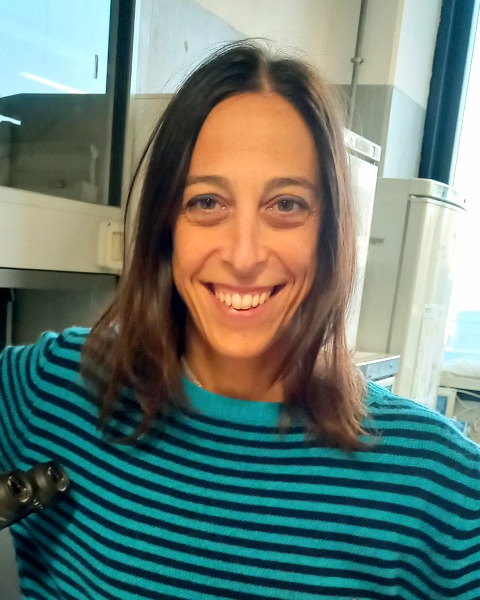
Anna Pistocchi, PhD (she/her/hers)
University of Milan
Anna Pistocchi
Associate Professor in Applied Biology
University of Milan, Dept. of Medical Biotechnology and Translational Medicine, LITA
In 2002 I graduated in biology at the University of Milan with a thesis on developmental biology and genetics using the zebrafish model for the first time. From then on, until I became a fully independent researcher and started to direct my own research group, all my research work focused on this model, both for the functional analysis of genes involved in different human pathologies, for comparative biology and embryology projects, and for translational medicine projects such as large-scale drug testing, cancer therapy and, lately, also environmental and behavioural screening. In fact, the zebrafish model is extremely versatile and has allowed me to study different tissues and organs such as the central nervous system, heart, skeletal muscles, and blood cells. These studies were then applied to the study of some human diseases such as Parkinson's disease, cardiac arrhythmias, Duchenne Muscular Dystrophy, and leukemias or lymphomas. In these contexts, I have often generated the zebrafish disease model to replicate the mutation present in humans and study how to rescue it.
For the past 8 years, I have also been working on another disease, cystic fibrosis, which can be replicated in zebrafish despite having no lungs. In particular, I have used this model to study bacterial infections in the absence of the gene responsible for cystic fibrosis (cftr) to test new antibacterial and anti-inflammatory therapies to be applied to affected human subjects. Among them, I have applied the innovative and efficient phage therapy and now I am trying to introduce it into the clinic as an antimicrobial in Italy as well. Bacteriophages, or phages, are viruses that infect and kill only bacteria, never human cells. Moreover, because they are specific in their action, they can target only certain bacteria, avoiding, for example, the destruction of intestinal bacteria. The goal of phage therapy is to offer a viable alternative to antibiotics both for people with cystic fibrosis, for whom the problem of antibiotic resistance is an urgent one, and for all those who come in contact with increasingly resistant bacteria.
I experience the research in my laboratory as being somewhere between a class of classmates and a family: we share joys, such as publishing an article or winning a grant, and if there is a problem we all feel called upon to lend a hand. In my opinion, the key to a peaceful working environment is to find a healthy balance with the outside world: I love doing science like crazy, but I don't neglect my private life outside the lab. That's the point: I don't feel obligated to be behind the microscope, doing research, I just love it!
Presentation(s):
-
S28.1- CFTR Loss-of-function Zebrafish Model
Saturday, September 28, 2024
10:15 AM - 12:15 PM ET
